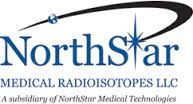预约演示
更新于:2026-02-26
Sodium Pertechnetate (99mTc)
更新于:2026-02-26
概要
基本信息
最高研发阶段批准上市 |
最高研发阶段(中国)- |
特殊审评- |
登录后查看时间轴
结构/序列
分子式NaO4Tc |
InChIKeyPTYSEDFCDJPPHO-FIXKXVDVSA-N |
CAS号23288-60-0 |
关联
8
项与 Sodium Pertechnetate (99mTc) 相关的临床试验CTIS2025-521770-34-00
Nebulised lIposomal aMphotericin B in chronic pUlmonary aSpergillosis: a deposition study
开始日期2026-01-05 |
NCT04724538
Inhalation Low Dose Radionuclide Therapy in Comprehensive Treatment of COVID-19 Viral Pneumonia
Coronavirus disease (COVID-19) is a pandemic of unprecedented proportions with an exponential increase in incidence. Airway epithelium infection caused by coronavirus (SARS-CoV-2) triggers a cascade of difficult-to-control reactions, a so-called "cytokine storm". In contrast to the previously used method of external beam radiation therapy for patients at high risk of a cytokine storm, in present study a different dose delivery mechanism through inhalation of 99mTc-labeled carbon ultrafine aerosol obtained from a TechnegasPlus generator is used. By utilizing anthropometric phantoms the dosimetric characteristics of the applied technique and obtained the coefficients of the transition from the count rate over the area of interest to the activity contained in this area (in kBq) were studied. By observing a group of healthy volunteers after inhalation of 99mTc-labeled carbon ultrafine aerosol, the accumulated dose in the human lungs under internal irradiation of 99mTc was determined. A novel technique has been developed and the possibility of using inhaled low-dose radionuclide therapy in the complex treatment of patients with COVID-19 - associated pneumonia has been studied. As a result, a significant improvement of hematological parameters in the group of patients after inhalation of 99mTc-labeled carbon ultrafine aerosol as compared to the control group is expected.
开始日期2020-10-15 |
申办/合作机构 |
CTR20182365
锝[99mTc]肼基烟酰胺聚乙二醇双环RGD 肽注射液在健康志愿者体内的药代动力学和安全性的I 期临床研究
检测锝[99mTc]肼基烟酰胺聚乙二醇双环RGD 肽(99mTc-3PRGD2)注射液在健康志愿者体内的药代动力学,以及在人体内的生物分布及估算内照射辐射吸收剂量,为II期临床研究方案设计提供依据;观察99mTc-3PRGD2对健康志愿者的安全性。
开始日期2018-12-07 |
申办/合作机构 中国科学院生物物理研究所 [+2] |
100 项与 Sodium Pertechnetate (99mTc) 相关的临床结果
登录后查看更多信息
100 项与 Sodium Pertechnetate (99mTc) 相关的转化医学
登录后查看更多信息
100 项与 Sodium Pertechnetate (99mTc) 相关的专利(医药)
登录后查看更多信息
244
项与 Sodium Pertechnetate (99mTc) 相关的文献(医药)2024-09-01·World Journal of Nuclear Medicine
SPECT/CT in the Diagnosis of Ectopic Gastric Mucosa-Meckel's Diverticulum
Article
作者: Usta, Yusuf ; Tuncel, Ferah ; Özcan, Pınar Pelin ; Koç, Zehra Pınar ; İsbir, Caner
Abstract:
Aim The imaging of Meckel's diverticulum (MD) is based of accumulation of Tc-99m pertechnetate in the ectopic gastric mucosa (EGM) content. Although the diagnostic accuracy of this imaging modality is high, there are some overlap patients with coexisting gastrointestinal bleeding and false positive causes hampering diagnostic power. The aim of this study was to evaluate the possible contribution of single-photon emission computed tomography/computed tomography (SPECT/CT) in EGM-MD diagnosis and to determine the indication of this additional imaging modality.
Materials and Methods Fifty-two pediatric patients (24 girls, 28 boys; mean age: 8.06 ± 5.22 years old) who have suspicion of MD and referred for scintigraphy were evaluated retrospectively. Additional SPECT/CT were performed to selected five cases among the group. The results of the scintigraphy as well as SPECT/CT were compared with endoscopy, pathology, and/or follow-up results.
Results There were 9 patients with equivocal study results, 12 positive results, and the others were considered negative MD scintigraphy. One patient was out of follow-up and 10 patients underwent surgery. Only one single patient was negative during surgery but scintigraphy was also negative. The diagnostic sensitivity, specificity, and accuracy were 100, 95, and 96%, respectively. Among five patients with SPECT/CT results one patient was diagnosed by only SPECT/CT who had EGM in duplication cyst, one equivocal patient was diagnosed as descending colon bleeding, and one patient's lesion was clearly delineated by SPECT/CT.
Conclusion SPECT/CT has clear advantage over standard planar scintigraphy imaging in EGM-MD determination. This modality might decrease equivocal and false positive results but this issue has to be addressed with further studies.
2024-03-01·World journal of nuclear medicine
Standardizing Normal Reference Value for Thyroid Uptake of Technetium-99m Pertechnetate in Nepalese Population
Article
作者: Bhattarai, Babita ; Paudel, Jiwan
Abstract:
Objective Changes in normal reference values of thyroid uptake for iodine have been reported due to geographical and chronological fluctuations in dietary iodine intake in different populations. Nepal is a country with mixed ethnicity, with access to dietary iodine in the form of successful universal salt iodination program by the government of Nepal since 1973. The aim of this study was to establish the normal reference values for thyroid uptake of technetium-99m (Tc-99m) pertechnetate in the Nepalese population in iodine sufficiency era.
Methods We prospectively evaluated 52 clinically and biochemically euthyroid participants (46 females and 6 males) with age range from 20 to 71 years who underwent a thyroid Tc-99m pertechnetate scan and uptake between December 2019 to November 2023 in the Department of Nuclear Medicine, Chitwan Medical College fulfilling inclusion/exclusion criteria. Biochemical thyroid function tests were reviewed and Tc-99m pertechnetate thyroid uptake values were determined for each patient. Blood was withdrawn for thyroid hormone assessment. Euthyroid participants were then administered 3.5 to 4.5 mCi of Tc-99m pertechnetate intravenously and their percentage thyroid uptake was calculated after 20 minutes.
Results The mean and median uptake of Tc-99m pertechnetate in euthyroid patients were 1.26 and 0.85%, respectively, and the interquartile range was 0.7 to 1.7%. The normal reference uptake value for Tc-99m pertechnetate in the studied population ranged between 0.3 and 3.6%. The fifth and 95th percentiles for pertechnetate uptake were 0.5 and 2.9%, respectively.
Conclusion The normal reference range for Tc-99m pertechnetate thyroid uptake in Nepalese population was 0.5 to 2.9% that is lower than the currently accepted international standard of 0.75 to 4.5%. Uptake also increased with increasing age. This study highlights the importance of periodically redefining the geographic location specific normal thyroid uptake reference values.
2024-01-01·Caspian Journal of Internal Medicine
Normal reference values for Tc-99m pertechnetate thyroid uptake in northern Iranian population: A single-center experience.
Article
作者: Shirafkan, Hoda ; Mousavie Anijdan, Seyyed Hossein ; Amiri, Mehrangiz ; Armaghan, Nima ; Gholami, Amir
Background:
The normal reference values for the thyroid uptake of radioactive iodine and Tc-99m pertechnetate in euthyroid patients vary by geographical location as well as the amount of iodine intake in the diet. The present study examines the normal reference values for thyroid uptake of Tc-99m pertechnetate in the North of Iran.
Methods:
The participants of this study were 64 patients (all over 20 years of age) who had referred to the Nuclear Medicine Center of the Shahid Beheshti Hospital for thyroid scan over the period between March 2018 and May 2020. It is worth mentioning that relying on laboratory test results, only patients with normal thyroid function were included in this cross-sectional study.
Results:
The median, the 5th and 95th percentiles and thyroid uptake range of 99mTc-pertechnetate in euthyroid patients were 0.9, 0.6 to 1.8% and 0.54 - 1.80%, respectively.
Conclusion:
The percentage of uptake in the thyroid gland in each geographical area varies based on race and diet content, so it is necessary to determine the percentage of uptake in each specific region and even check it periodically.
8
项与 Sodium Pertechnetate (99mTc) 相关的新闻(医药)2025-11-20
01. 诺华
2025年11月20日,CDE公示最新公示信息显示,诺华公司的镥[177Lu]vipivotide tetraxetan(177Lu-PSMA-617)注射液的上市申请获得受理(受理号JXHL2500358);镓[68Ga]gozetotide (68Ga-PSMA-11)注射液的药盒的补充申请获得受理(受理号JXHL2500356),分类为5.1类(进口)。
2025年11月5日,诺华公司宣布其放射配体疗法(RLT)药物派威妥®(镥[177Lu]特昔维匹肽注射液)的两个适应症同时获得国家药品监督管理局批准,分别为用于治疗既往接受过雄激素受体通路抑制剂(ARPI)后疾病进展且适合延迟化疗的前列腺特异性膜抗原(PSMA)阳性转移性去势抵抗性前列腺癌(mCRPC)成人患者和既往接受过ARPI和紫杉类化疗后疾病进展的PSMA阳性mCRPC成人患者。作为国内首个且目前唯一获批的靶向PSMA的放射配体疗法药物,派威妥®的这两个适应症此前均获得优先审评认定,此次同时获批,有望为更多治疗选择有限的中国晚期前列腺癌患者,提供延长生存并改善生活质量的全新治疗方案。本段源自:诺华公司首个放射配体疗法药物派威妥®(镥[177Lu]特昔维匹肽注射液)双适应症同时获批
02. 成都欣科
2025年11月19日,CDE最新公示信息显示,成都欣科医药有限公司提交的氯化锶[89Sr]注射液补充申请已正式获得受理,受理号为CYHB2502371,注册分类为4。
氯化锶[89Sr]是一种亲骨性放射性核素,发射平均能量为1.463MeV的β射线,半衰期为50.5天,锶与钙是同族元素,化学性质类似,进入体内后同钙一样参与骨矿物质的代谢。由于恶性肿瘤转移灶周围成骨细胞代谢活跃,有资料显示,注射后90天,骨转移灶内89Sr的滞留量仍可达20%-88%,因此可持久地维持药效。本段源自:氯化锶[89Sr]治疗骨转移前后那些事儿
03. 中国工程物理研究院核物理与化学研究所
2025年11月19日,CDE最新公示信息显示,由中国工程物理研究院核物理与化学研究所(简称二所)作为申请人提交的“高锝[99mTc]酸钠注射液”补充申请已获得正式受理(受理号:CYHB2502366),注册分类为化学药品4类。
锝[99mTc]放射性药品一般由即时标记放射性药品生产企业或具有第三类以上(包括第三类)《放射性药品使用许可证》的医疗机构,在无菌操作条件下,以高锝[99mTc]酸钠注射液和相应注射用配套药盒制备得到。锝[99mTc]放射性药品的制备涉及环节较多,除高锝[99mTc]酸钠注射液和注射用配套药盒必须符合相应的质量标准外,对最终的成品必须进行质量检验。由于锝[99mTc]的物理半衰期仅为6.02小时,为此,以其制备的药品必须在制备后数十分钟至数小时内使用,不可能在完成全部质量检验后才发货或使用。根据《放射性药品管理办法》第十六条规定,锝[99mTc]放射性药品可边检验边发货或使用。同时,一批锝[99mTc]放射性药品仅为1剂或数剂药品(一般体积仅为数毫升),对每一批锝[99mTc]放射性药品进行全部质量检验是不现实的。本段源自:锝[99mTc]放射性药品质量控制指导原则
04. 阿斯利康
2025年11月20日,CDE最新公示信息显示,阿斯利康(AstraZeneca AB)申报的1类放射性诊断药物[111In]-FPI-2107及其配套双特异性抗体FPI-2053(EGFR/c-MET双抗)的临床试验申请获得受理。
公开信息显示,该研究是一项首次人体(First-in-Human)的Phase 1、多中心、开放标签、非随机化临床试验,旨在评估旨在研究 [225Ac]-FPI-2068、[111In]-FPI-2107 和 FPI-2053 在多种晚期实体瘤患者中的安全性、耐受性、药代动力学、生物分布和剂量特征。研究针对的适应症包括头颈鳞癌(HNSCC)、非小细胞肺癌(NSCLC)、转移性结直肠癌(mCRC)、胰腺导管腺癌(PDAC)、胃癌(GC)和肾细胞癌(RCC)等转移性或复发性实体瘤。详情可https://clinicaltrials.gov/study/NCT06147037
●【CDE核药简讯】:北京先通、诺华核药新适应症申报上市
●Alpha Atlas:全球α核素版图
●核药 | 先通医药177Lu-FAPI-XT治疗晚期肉瘤和其他实体瘤的安全性和有效性:首次人体剂量递增研究
●新型“酮酰胺”FAP抑制剂-KetoFAPI,实现肿瘤特异性靶向与长效治疗的完美协同
声明:本文观点仅代表小核本人,视角局限,欢迎批评指正;如需转载,请务必注明文章作者和来源。如有其它问题,请在本平台留言或联系xiaoheshuoheyao777@163.com,小核将在第一时间处理。
小核 | xiaoheshuoheyao777(微信)
Copyright © 小核说核药 All Rights Reserved.
2025-11-20
01. Sirtex(远大医药)
2025年11月20日,北京——中国国家药品监督管理局药品审评中心(CDE)最新公示信息显示,钇[90Y]微球注射液的补充申请获得受理,受理号为JYHB2500638。
2025年9月,远大医药全球创新放射性产品SIR-Spheres®钇[90Y]微球注射液在欧洲获批新增适应症。此次批准新增适应症使SIR-Spheres®钇[90Y]微球注射液的适用范围在原有的不可切除的HCC和不可切除的mCRC基础上,扩展到不可切除的ICC、mNET或其他肝转移等多重适应症,涵盖的原发性肝癌和继发性肝转移的分类更全面;海外相关临床数据也将为该产品在中国拓展肝癌相关适应症提供关键支持,同时本集团正积极与中外专家合作开发钇[90Y]微球注射液的其他适应症,并将采用“中美双报”的国际化注册路径,促进该产品的全球市场拓展;SIR-Spheres®钇[90Y]微球注射液是全球首个且唯一获FDA批准用于不可切除HCC和结直肠癌肝转移双重适应症的选择性内放射治疗产品。本段源自:远大医药全球创新放射性产品SIR-Spheres®钇[90Y]微球注射液在欧洲获批新增适应症
02. 诺华
2025年11月20日,CDE公示最新公示信息显示,诺华公司的镥[177Lu]vipivotide tetraxetan(177Lu-PSMA-617)注射液的上市申请获得受理(受理号JXHL2500358);镓[68Ga]gozetotide (68Ga-PSMA-11)注射液的药盒的补充申请获得受理(受理号JXHL2500356),分类为5.1类(进口)。
2025年11月5日,诺华公司宣布其放射配体疗法(RLT)药物派威妥®(镥[177Lu]特昔维匹肽注射液)的两个适应症同时获得国家药品监督管理局批准,分别为用于治疗既往接受过雄激素受体通路抑制剂(ARPI)后疾病进展且适合延迟化疗的前列腺特异性膜抗原(PSMA)阳性转移性去势抵抗性前列腺癌(mCRPC)成人患者和既往接受过ARPI和紫杉类化疗后疾病进展的PSMA阳性mCRPC成人患者。作为国内首个且目前唯一获批的靶向PSMA的放射配体疗法药物,派威妥®的这两个适应症此前均获得优先审评认定,此次同时获批,有望为更多治疗选择有限的中国晚期前列腺癌患者,提供延长生存并改善生活质量的全新治疗方案。本段源自:诺华公司首个放射配体疗法药物派威妥®(镥[177Lu]特昔维匹肽注射液)双适应症同时获批
03. 成都欣科
2025年11月19日,CDE最新公示信息显示,成都欣科医药有限公司提交的氯化锶[89Sr]注射液补充申请已正式获得受理,受理号为CYHB2502371,注册分类为4。
氯化锶[89Sr]是一种亲骨性放射性核素,发射平均能量为1.463MeV的β射线,半衰期为50.5天,锶与钙是同族元素,化学性质类似,进入体内后同钙一样参与骨矿物质的代谢。由于恶性肿瘤转移灶周围成骨细胞代谢活跃,有资料显示,注射后90天,骨转移灶内89Sr的滞留量仍可达20%-88%,因此可持久地维持药效。本段源自:氯化锶[89Sr]治疗骨转移前后那些事儿
04. 中国工程物理研究院核物理与化学研究所
2025年11月19日,CDE最新公示信息显示,由中国工程物理研究院核物理与化学研究所(简称二所)作为申请人提交的“高锝[99mTc]酸钠注射液”补充申请已获得正式受理(受理号:CYHB2502366),注册分类为化学药品4类。
锝[99mTc]放射性药品一般由即时标记放射性药品生产企业或具有第三类以上(包括第三类)《放射性药品使用许可证》的医疗机构,在无菌操作条件下,以高锝[99mTc]酸钠注射液和相应注射用配套药盒制备得到。锝[99mTc]放射性药品的制备涉及环节较多,除高锝[99mTc]酸钠注射液和注射用配套药盒必须符合相应的质量标准外,对最终的成品必须进行质量检验。由于锝[99mTc]的物理半衰期仅为6.02小时,为此,以其制备的药品必须在制备后数十分钟至数小时内使用,不可能在完成全部质量检验后才发货或使用。根据《放射性药品管理办法》第十六条规定,锝[99mTc]放射性药品可边检验边发货或使用。同时,一批锝[99mTc]放射性药品仅为1剂或数剂药品(一般体积仅为数毫升),对每一批锝[99mTc]放射性药品进行全部质量检验是不现实的。本段源自:锝[99mTc]放射性药品质量控制指导原则
05. 阿斯利康
2025年11月20日,CDE最新公示信息显示,阿斯利康(AstraZeneca AB)申报的1类放射性诊断药物[111In]-FPI-2107及其配套双特异性抗体FPI-2053(EGFR/c-MET双抗)的临床试验申请获得受理。
公开信息显示,该研究是一项首次人体(First-in-Human)的Phase 1、多中心、开放标签、非随机化临床试验,旨在评估旨在研究 [225Ac]-FPI-2068、[111In]-FPI-2107 和 FPI-2053 在多种晚期实体瘤患者中的安全性、耐受性、药代动力学、生物分布和剂量特征。研究针对的适应症包括头颈鳞癌(HNSCC)、非小细胞肺癌(NSCLC)、转移性结直肠癌(mCRC)、胰腺导管腺癌(PDAC)、胃癌(GC)和肾细胞癌(RCC)等转移性或复发性实体瘤。详情可https://clinicaltrials.gov/study/NCT06147037
●【CDE核药简讯】:北京先通、诺华核药新适应症申报上市
●Alpha Atlas:全球α核素版图
●核药 | 先通医药177Lu-FAPI-XT治疗晚期肉瘤和其他实体瘤的安全性和有效性:首次人体剂量递增研究
●新型“酮酰胺”FAP抑制剂-KetoFAPI,实现肿瘤特异性靶向与长效治疗的完美协同
声明:本文观点仅代表小核本人,视角局限,欢迎批评指正;如需转载,请务必注明文章作者和来源。如有其它问题,请在本平台留言或联系xiaoheshuoheyao777@163.com,小核将在第一时间处理。
小核 | xiaoheshuoheyao777(微信)
Copyright © 小核说核药 All Rights Reserved.
放射疗法优先审批上市批准申请上市
2025-05-06
_Enables Lantheus to focus on innovative radiopharmaceuticals, while maximizing the value of its SPECT business_
_SHINE will acquire products TechneLite®, NEUROLITE®, Xenon Xe-133 Gas, and Cardiolite®_
BEDFORD, Mass., May 06, 2025 (GLOBE NEWSWIRE) -- Lantheus Holdings, Inc. (“Lantheus” or the “Company”) (NASDAQ: LNTH), the leading radiopharmaceutical-focused company dedicated to helping clinicians Find, Fight, and Follow disease to deliver better patient outcomes, today announced a definitive agreement to sell its single photon emission computed tomography (SPECT) business to Illuminated Holdings, Inc., the parent company of SHINE Technologies, LLC (collectively, “SHINE”). Under the terms of the agreement, SHINE will acquire Lantheus’ SPECT business, including its diagnostic agents (TechneLite® (Technetium Tc 99m generator), NEUROLITE® (Kit for the Preparation of Technetium Tc 99m Bicisate for Injection), Xenon Xe-133 Gas (Xenon Xe-133 Gas), and Cardiolite® (Kit for the Preparation of Technetium Tc99m Sestamibi for Injection)), the portion of the North Billerica, Massachusetts campus that manufactures Lantheus’ SPECT products, and the SPECT-related Canadian operations.
The transaction allows Lantheus to focus on growing its commercial portfolio of innovative PET radiodiagnostics and microbubbles, while advancing its pipeline of radiopharmaceuticals. SHINE is a global leader in nuclear medicine production and, with its proven expertise in developing next-generation fusion and fusion-based technology and sustainable medical isotope supply chains, is the ideal partner to ensure the continuity and expansion of the SPECT business.
“This transaction enables Lantheus to concentrate our efforts on enhancing our radiopharmaceutical leadership focused on innovative diagnostics and therapeutics," said Brian Markison, CEO of Lantheus. “While the SPECT business has been a foundational part of Lantheus’ nearly 70-year history, we believe it is the right time for this business and its outstanding employees to continue driving success with SHINE, a company well-positioned to ensure its long-term growth and positive patient impact.”
Markison continued, “Today’s announcement builds on our strong momentum and agreements to acquire Life Molecular Imaging and Evergreen Theragnostics. These strategic actions will enable us to focus on growing our portfolio, advancing and expanding our pipeline, and enhancing our capabilities across the radiopharmaceutical value chain.”
"This acquisition builds on our longstanding partnership with Lantheus and we are confident the SPECT business and the talented team will significantly strengthen our platform," said Greg Piefer, CEO of SHINE. "We look forward to joining the operational strength of this business with our advanced isotope production capabilities to ensure continuity and growth of the SPECT business, a seamless transition for employees and a long-term reliable supply of essential radioisotopes.”
Under terms of the agreement, Lantheus will receive an upfront cash payment, a note convertible into SHINE preferred stock, and additional consideration, including potential earnout milestones. The transaction has been approved by the Boards of Directors of both companies and is expected to close by the end of the year, subject to customary closing conditions.
并购
100 项与 Sodium Pertechnetate (99mTc) 相关的药物交易
登录后查看更多信息
外链
| KEGG | Wiki | ATC | Drug Bank |
|---|---|---|---|
| - | Sodium Pertechnetate (99mTc) | - |
研发状态
10 条最早获批的记录, 后查看更多信息
登录
| 适应症 | 国家/地区 | 公司 | 日期 |
|---|---|---|---|
| 肿瘤 | 加拿大 | 2020-11-26 | |
| 膀胱输尿管返流 | 美国 | 2018-02-08 | |
| 脑癌 | 日本 | 1979-02-15 | |
| 胃黏膜异位 | 日本 | 1979-02-15 | |
| 脑卒中 | 日本 | 1979-02-15 | |
| 胎盘早剥 | 美国 | 1973-11-23 | |
| 造影剂 | 美国 | 1973-11-23 | |
| 泪器阻塞 | 美国 | 1973-11-23 | |
| 膀胱疾病 | 美国 | 1973-11-23 | |
| 脑疾病 | 日本 | 1973-02-23 | |
| 胃粘膜病变 | 日本 | 1973-02-23 | |
| 肺部疾病 | 日本 | 1973-02-23 | |
| 涎液疾病 | 日本 | 1973-02-23 | |
| 甲状腺疾病 | 日本 | 1973-02-23 |
登录后查看更多信息
临床结果
临床结果
适应症
分期
评价
查看全部结果
| 研究 | 分期 | 人群特征 | 评价人数 | 分组 | 结果 | 评价 | 发布日期 |
|---|
No Data | |||||||
登录后查看更多信息
转化医学
使用我们的转化医学数据加速您的研究。
登录
或

药物交易
使用我们的药物交易数据加速您的研究。
登录
或

核心专利
使用我们的核心专利数据促进您的研究。
登录
或

临床分析
紧跟全球注册中心的最新临床试验。
登录
或

批准
利用最新的监管批准信息加速您的研究。
登录
或

特殊审评
只需点击几下即可了解关键药物信息。
登录
或

生物医药百科问答
全新生物医药AI Agent 覆盖科研全链路,让突破性发现快人一步
立即开始免费试用!
智慧芽新药情报库是智慧芽专为生命科学人士构建的基于AI的创新药情报平台,助您全方位提升您的研发与决策效率。
立即开始数据试用!
智慧芽新药库数据也通过智慧芽数据服务平台,以API或者数据包形式对外开放,助您更加充分利用智慧芽新药情报信息。
生物序列数据库
生物药研发创新
免费使用
化学结构数据库
小分子化药研发创新
免费使用



